In the nineteenth century, The Royal Mint enjoyed a golden age of exquisite artistry and engraving talent, precipitated by Thomas and William Wyon, the latter of whom went on to share a fierce rivalry with the great Benedetto Pistrucci.
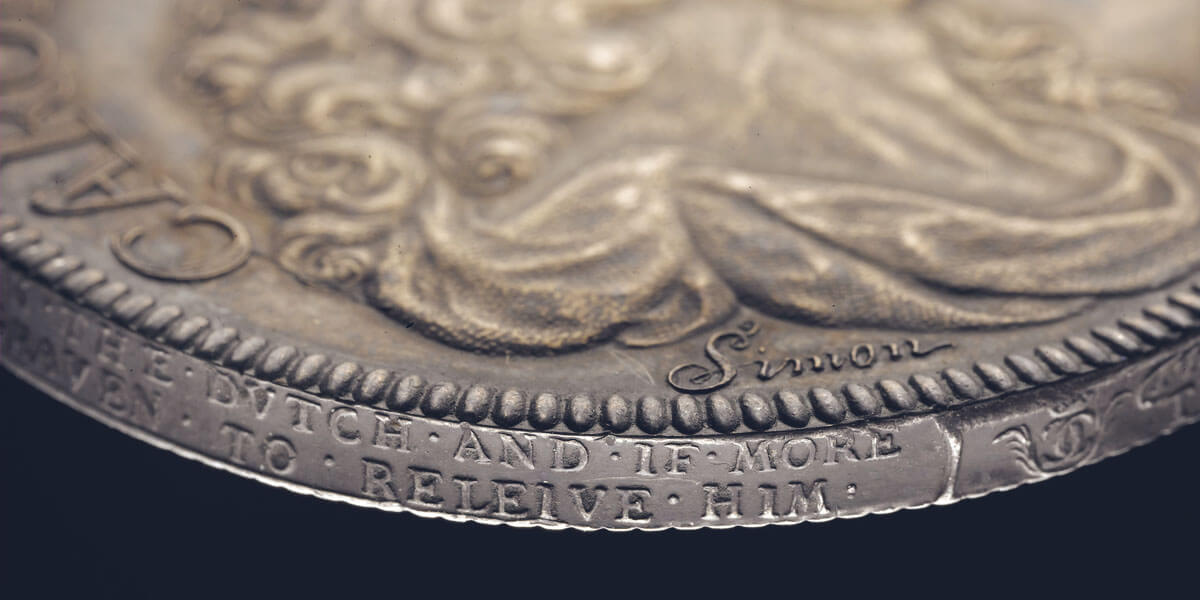
However, 150 years earlier, Thomas Simon made a mark on the nation’s coinage that is still recognised today. Serving under Charles I, Oliver Cromwell and finally Charles II following the Restoration, Simon’s works are numerous, but his most famous and revered piece is the Petition Crown.
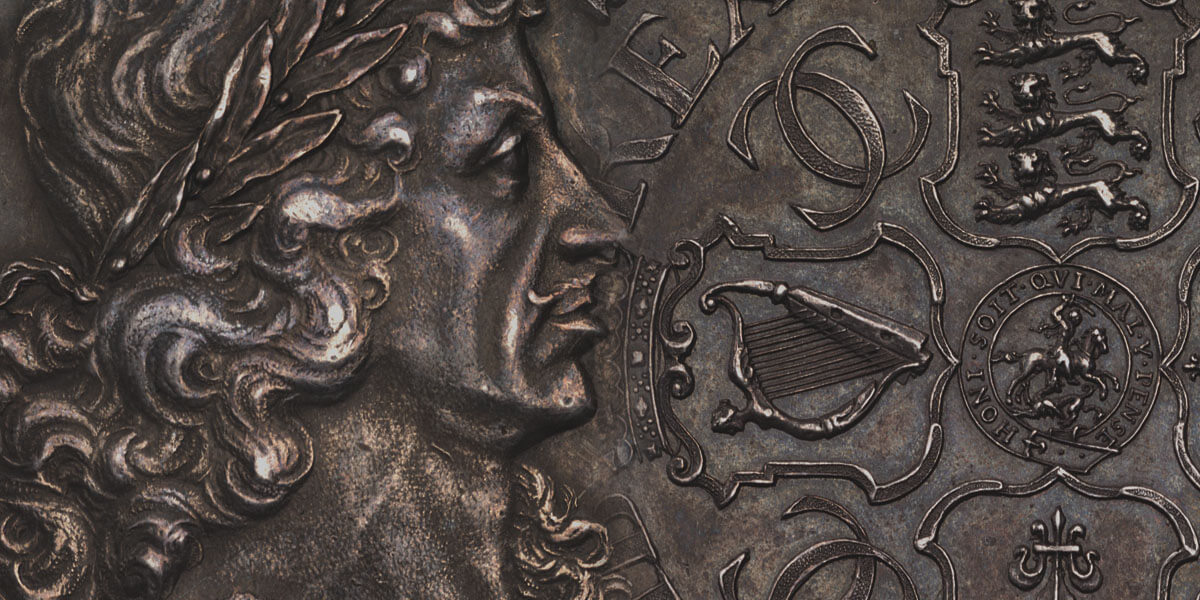
An Appeal Through Artistry
Charles II instructed Dutch brothers John and Joseph Roettier to engrave a trial piece for his judgement. The king favoured their work, which was highly competent but by no means artistically inspiring. In response to their piece, Simon engraved his Petition Crown. The coin is marvelled for its two-line edge inscription, which bore Simon’s literal petition to the king:
‘THOMAS SIMON MOST HVMBLY PRAYS YOVR MAJESTY TO COMPARE THIS HIS TRYALL PIECE WITH THE DVTCH AND IF MORE TRVLY DRAWN & EMBOSS’D MORE GRACE: FVLLY ORDER’D AND MORE ACCVRATELY ENGRAVEN TO RELEIVE HIM’
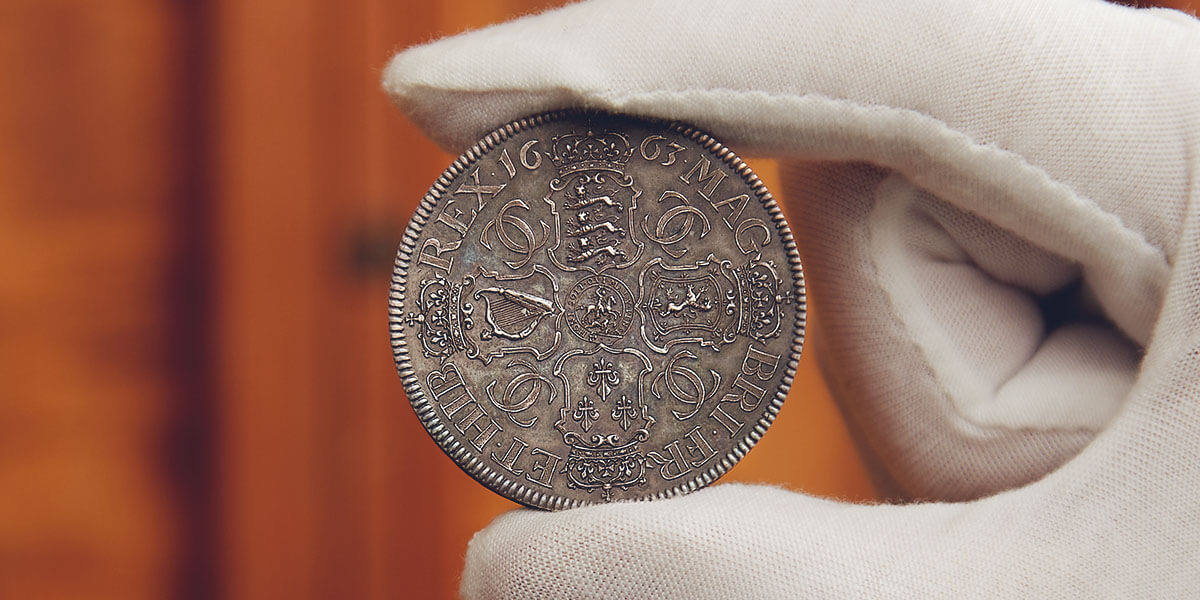
Inspired by Tradition
The reverse of Simon’s design includes a small image of St George, representing the Order of the Garter. The design also features intertwining Cs in the form of Charles II’s Royal Cypher, which unite the crowned shields of England, Scotland, Ireland and France. William Wyon is said to have made copies of Simon’s quartered arms early in his career, which epitomises Simon’s brilliant artistry and engraving talent.
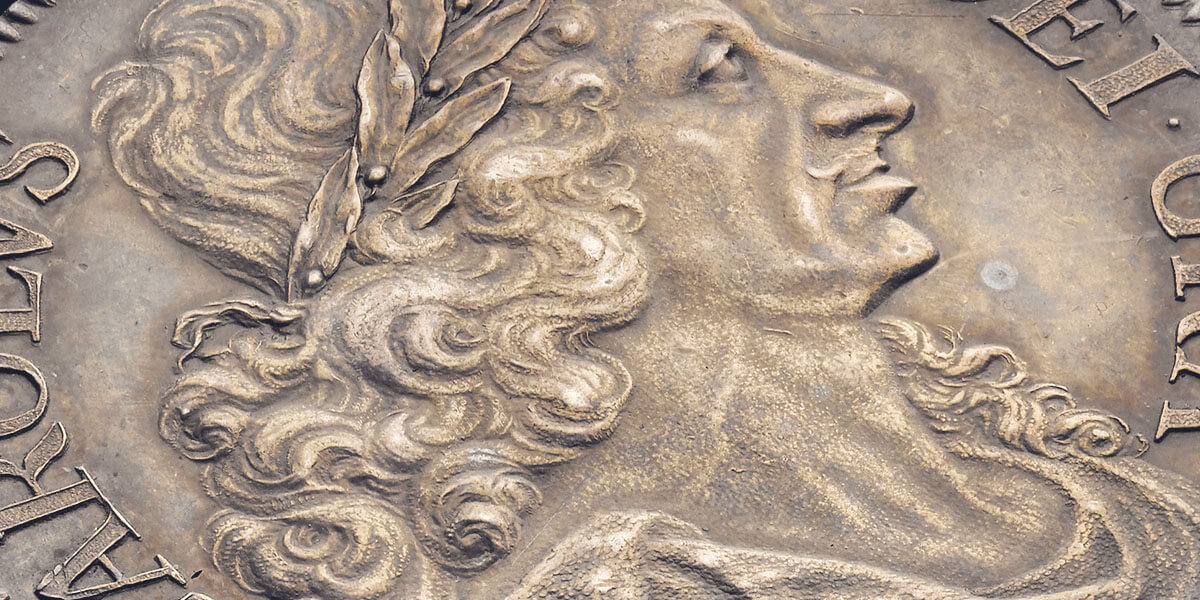
An Elegant Portrait
Simon was no amateur when it came to creating the portrait of Charles II; he had created portraits during the previous regime for Cromwell and received great commendation and acknowledgment for his work. Whilst his portrait on the Petition Crown is similar to the one created by the Roettier brothers, Simon’s interpretation is imbued with much finer workmanship that depicts the king through a life-like lens. Opting to portray the king on a much larger scale than he did for the Cromwell portrait, where the relief is considerably higher, Simon embellished his piece with intricate detail. He depicted the monarch’s hair cascading in fine waves around the neck and onto the shoulder, capturing a remarkable level of detail for a coin.
It is serendipitous for Charles II to feature on the reverse of one of the coins in the Petition Crown two-coin set, as the obverse of both coins feature the official coinage portrait of His Majesty The King. The coins therefore serve as a wonderful tribute to a remarkable numismatic achievement, whilst representing a new Carolean era under King Charles III.
Modernising a Masterpiece
The raised edge lettering of the Petition Crown is an achievement of unmatched engraving skill. What is even more impressive is the creation of the two-line edge inscription that was made before advancements in minting technology. Even now, more than 350 years since Simon created his work of genius, remastering the edge lettering is a significant challenge, which serves as a testament to Simon’s extraordinary engraving talent.
“Thomas Simon’s work is not only remarkable for his obvious ability as an artist and as a highly accomplished engraver but also for his incredible ability to innovate. Even from our advantaged perspective, following 350 years of Scientific Method, Enlightenment and the Industrial and Digital Revolutions, producing raised edge inscriptions by the methods Simon conceived is still a huge challenge.”
Gordon Summers, Chief Engraver
Historic Coins

1661 Coronation of Charles II Silver Medal by Thomas Simon
Very Fine Condition
Price: £700.00
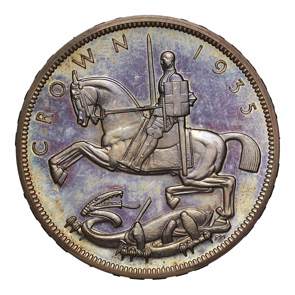
1935 George V Proof Jubilee Crown
Graded by NGC PF64
Price: £2,730.00
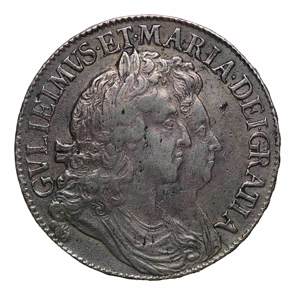
1691 William and Mary Crown
Very Fine Condition
Price: £2,730.00
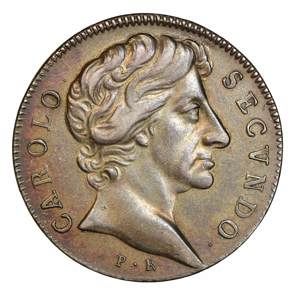
1667 Charles II, State of Britain, Silver Medal by P. Roettier
Good Very Fine Condition
Price: £665.00
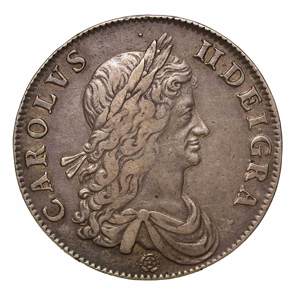
1662 Charles II Crown, first bust rose below, first milled crown by Roettier
Very Fine Condition
Price: £1,950.00
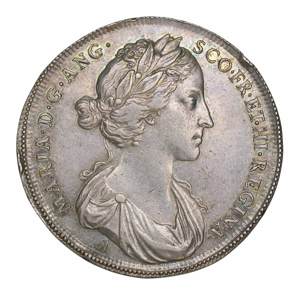
1685 Coronation of Mary, Silver Medal by John Roettier
Good Very Fine Condition
Price: £700.00

1670 Charles II and Catherine of Braganza, British Colonization, Silver Medal, by John Roettier
Extremely Fine Condition
Price: £2,185.00
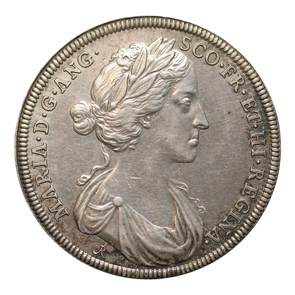
1685 Coronation of Mary Silver Medal by John Roettier
Good Very Fine Condition
Price: £700.00
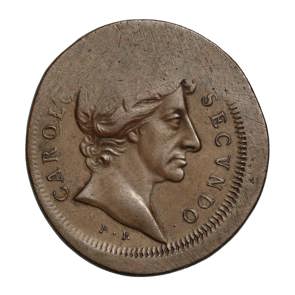
Charles II, State of Britain, c 1667, trial striking in copper of the silver medal by Philip Roettier
Good Very Fine Condition
Price: £345.00
